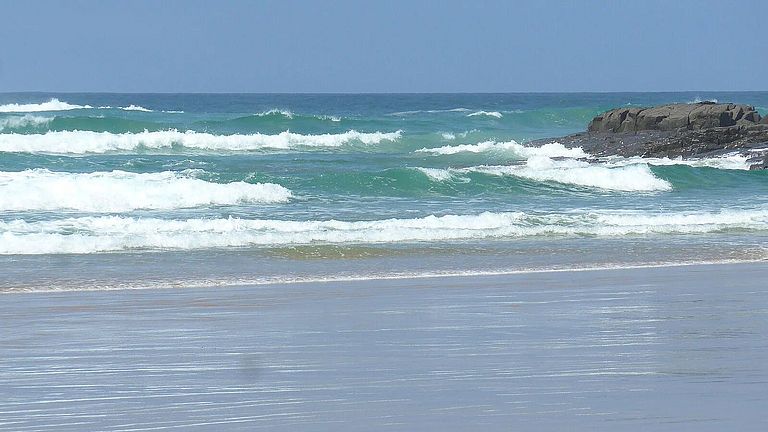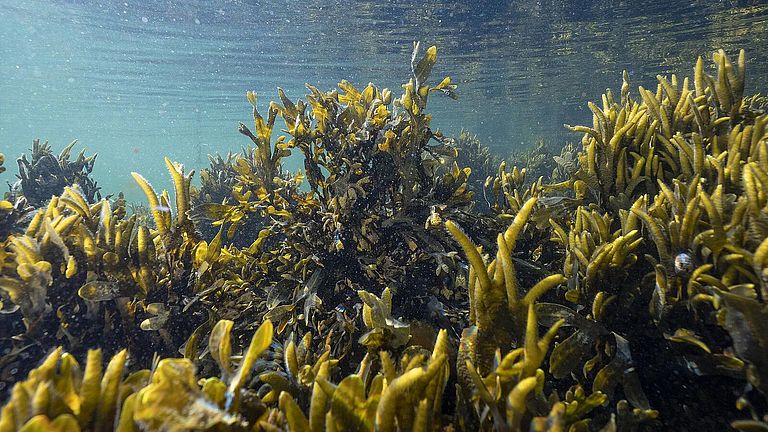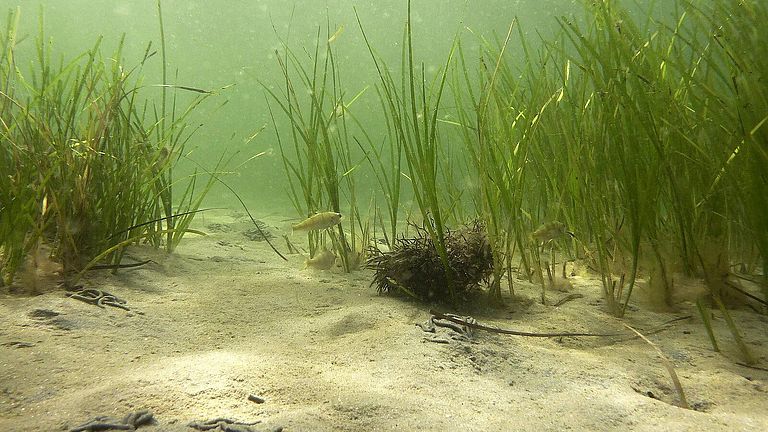Initiative Ocean Health aims to close knowledge gaps in marine science
Research into various aspects of ocean health, a comprehensive understanding of the consequences for the marine ecosystem and the challenge of creating an appropriate regulatory framework for the use of resources vital to humanity are among the future topics in marine sciences with high social relevance.
GEOMAR contributes significantly to the development of the scientific research initiative Ocean Health with the Kiel Marine Science (KMS) priority research area of Kiel University. The scientists combine their activities in the Ocean Health research initiative in an interdisciplinary manner from microbiological, ecological, geological, oceanographic, informational, economic, medical-ethical and social perspectives.
Ocean Health studies the health of marine organisms, but also of entire marine ecosystems, especially under the effects of climate change: from molecular mechanisms of bacteria-bacteria interactions, the healthy composition of the microbiomes of marine animals, to physiological adaptability and global distribution patterns of toxic algal blooms, the influence of climate change on emerging diseases in the sea is being investigated. Different approaches show that stress, for example in the form of underwater noise, acidification or temperature extremes, can limit the resilience of marine organisms to diseases and also influence the biodiversity of marine ecosystems.
In order to understand the mechanisms of infection, immune responses and their evolution, research will be conducted on common model organisms and in geographical focus regions, from the molecular level to global circulation models. Using new data analysis methods, results from different disciplines can contribute to improved models and prediction options.
In the future, coordinated field studies will investigate the interplay between challenging environmental conditions and the occurrence of marine diseases, but also the regulatory role of viruses and bacteria in ecosystems. This is planned, for example, on the Cape Verde Islands, in cooperation with the Ocean Science Centre Mindelo (GEOMAR), as well as in the North and Baltic Seas or in the North Atlantic, in cooperation with Dalhousie University. The new research initiative aims to make Kiel a globally visible hub of knowledge on ocean health through further international partnerships.
In the future, coordinated field studies will investigate the interplay between challenging environmental conditions and the occurrence of marine diseases, but also the regulatory role of viruses and bacteria in ecosystems. This is planned, for example, on the Cape Verde Islands, in cooperation with the Ocean Science Centre Mindelo (GEOMAR), as well as in the North and Baltic Seas or in the North Atlantic, in cooperation with Dalhousie University. The new research initiative aims to make Kiel a globally visible hub of knowledge on ocean health through further international partnerships.





